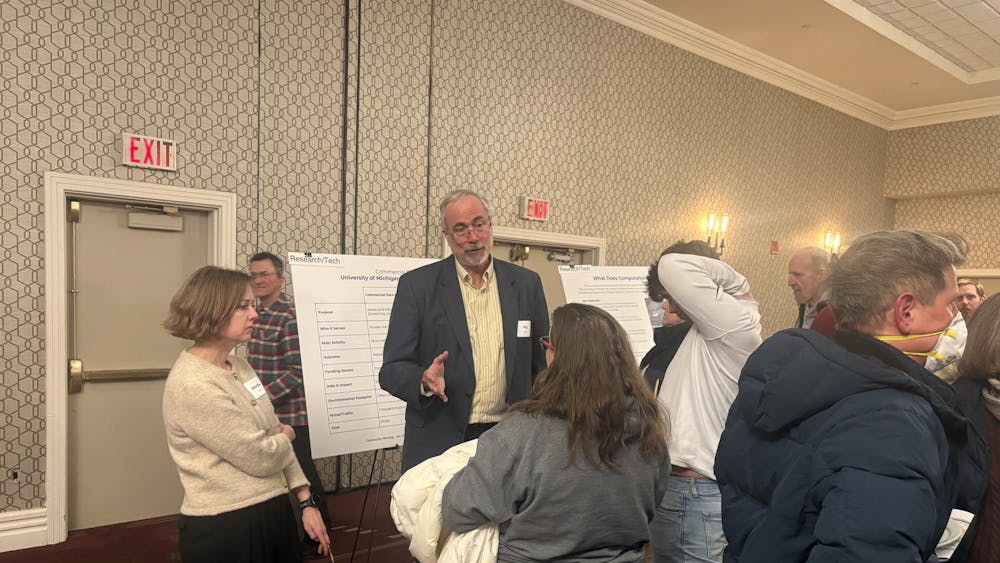Interim Director of the Ypsilanti Housing Commission Eric Temple gave a presentation before Ypsilanti City Council Tuesday, Sept. 18, updating the commission’s U.S. Department of Housing and Urban Development status.
On the basis of an annual Public Housing Assessment System score, pursuant to the United States Housing Act of 1937, the Ypsilanti Housing Commission has been designated as troubled or substandard for financial, physical and/or management indicators.
The Ypsilanti City Council approved the HUD Recovery Agreement and Action Plan resolution, after approving four amendments and requesting a chronology dating back as far as 2007 describing where accounting may have gone wrong.
During the audience participation session, Ypsilanti Public School Board trustee Andy Fanta asked City Council to approve the resolution and requested the same financial chronology in order to provide understanding as to why Ypsilanti lost its Section 8 housing.
“I think it would be a terrible blemish for the city to lose its public housing program,” Fanta said. “I think this directly affects some of the kids that come to school in the Ypsilanti school district. It’s a sad reality that we have between 25-40 homeless kids attending school here.”
Temple said he would provide the requested documentation for the board to review.
In 2011, HUD began to recapture funds from City Council in the amount of $170,000 per month. Before that the housing commission was approximately $2 million strong in the bank, according to Temple.
Once the recapturing of funds began, accounting showed that the city council would not be sufficient in carrying through until the end of the year, leaving them one and a half months short of being able to pay housing vouchers and causing a shortfall.
“We’re way beyond pointing fingers and trying to assess blame,” Fanta said. “We’re just trying to understand what did happen.”
In the assessment conducted by HUD the following results were found in the area of finance:
•YHC is transferring its Home Choice Voucher Program.
•YHC received a 0 out of 11 score in its months expendable net
assets ratio.
•The YHC lacks understanding of the financial aspects of the agency
(e.g. used low rent public housing dollars to support its non-LRPH
mixed finance project).
•The YHC does not have quality fee accountancy.
“The YHC asked HUD if they could modify occupancy requirements using a voucher payment standard, to ‘two heartbeats per room’ in order to meet the current budget,” Temple said.
The current requirement of occupancy is limited to one person per bedroom in a household.
They refused the request because it would have caused families to pay more than they are currently paying.
Temple also said an independent assessment has been conducted based on HUD’s findings and is expected to be available for City Council to review by Sept. 24.
The Section 8 housing program is in process of transferring to the Michigan State Housing Development Authority and will be transferred officially Nov. 1, 2012.
Concern was expressed by council that MSHDA have a presence in the City of Ypsilanti, to which Temple responded that while the City Council’s housing program covered Monroe, Washtenaw and Wayne counties, MSHDA will have a presence in each.
People from Wayne and Monroe counties will no longer have to come to Ypsilanti for Section 8 services and Washtenaw residents will have two locations to serve them: Ann Arbor and Ypsilanti.
“Where [MSHDA] will be housed, we don’t know right now, but they will be present here in the community,” Temple said.
Council said there has been dialogue between Washtenaw County and the City of Ann Arbor about regionalizing HUD for the surrounding areas, but they have not been a part of those talks.
“I think we should get on board with that, even though we haven’t been part of those conversations,” said Mayor Pro Tem Lois Richardson. “I think we should interject ourselves into those conversations.”









